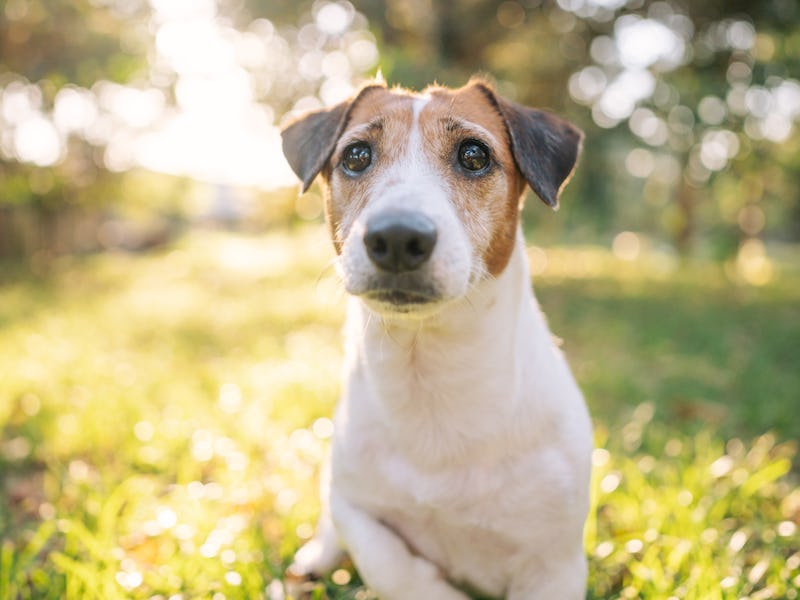A Puppy Kindergarten Teacher Reveals the Foolproof Method to Teach Your Pet Its Name
Your pet knows its name, but not in the same way you know yours.

Naming your pet is a momentous responsibility. And the right name is the one that sticks. For example, my cat’s name is Stanley (a formal name because he’s a tuxedo cat), which, with time, became Stanley Boy, then Stanley Bo, then just Bo, and then Bobo. He now answers almost exclusively to the names Bobo, Boba, Bubba, or even Bubbe.
But does Stanley, or any pet for that matter, actually know its name? It turns out a name does hold meaning for our furry children, but not in the same way it does for us.
Like with any cue, animals learn their names using good old positive reinforcement, Vanessa Woods, an evolutionary anthropology research scientist at Duke University and director of the Duke Puppy Kindergarten, tells Inverse.
To teach a puppy its name, Woods offers a treat every time a puppy looks at her in response to hearing their name. “In general, the research is that dogs respond just like children do,” she says. When your pet hears their name, “as much as a kid would, they know they're supposed to respond and either come or they’re supposed to look at you.”
They distinguish the tone of voice, too. Like children, dogs respond to what Woods calls “motherese,” which is “when you artificially make your voice higher [and] more excited, the way [we] talk to kids and to pets.” Research shows that babies respond more to motherese from their moms than other tones of voice. However, Woods emphasizes that pups can differentiate their names even in motherese and know when their human coos their name or some other word.
Like with any cue, animals learn their names using good old positive reinforcement, Vanessa Woods, an evolutionary anthropology research scientist at Duke University and director of the Duke Puppy Kindergarten, tells Inverse.
This affinity for motherese extends to cats, as demonstrated in a 2022 study published in the journal Animal Cognition. Cats, too, can discern their names from similar-sounding words, according to a 2019 study published in the journal Scientific Reports. Throughout four experiments, as many as 34 cats from local households and a cat cafe could tell their names from a general noun, even when strangers spoke — but the cafe kitties couldn’t tell apart their own names. When one of their names was called, multiple cats responded. The authors explain that the cafe’s varying humans may all say the names differently, which “may hinder cats in discriminating their name from those of other cats,” they write.
If you’re teaching your pet their name using Woods’ reward technique, challenge them by throwing in other words in your best motherese or similar-sounding names. Don’t praise them, she says, for responding to a different word said in motherese “so they know that it's not the tone of voice, it's their actual name that they’re supposed to respond to.”
This also goes for learning new names, whether you’re bequeathing your adoptee a new moniker or you just can’t stop coming up with nicknames for Dumpling. Woods says your pet can, indeed, keep up. She says that dogs can commit over a thousand words to their vocabulary, a couple of nonsense names included. “ If you want to start calling your dog something random, then you can definitely teach them to respond to that,” she says. And, especially if you’re using treats, Woods says the process shouldn’t take too long.
Aside from what they’re cued to do, it’s much harder to say what pets associate their name with. “As to what their name means to them, I think that's a really difficult question,” Woods says. “That's super esoteric, and I don't think you're ever going to be able to figure that one out.”
So Stanley and Dumpling may never internalize these terms as part of their identities, their selves, but at least they’ll come when called.